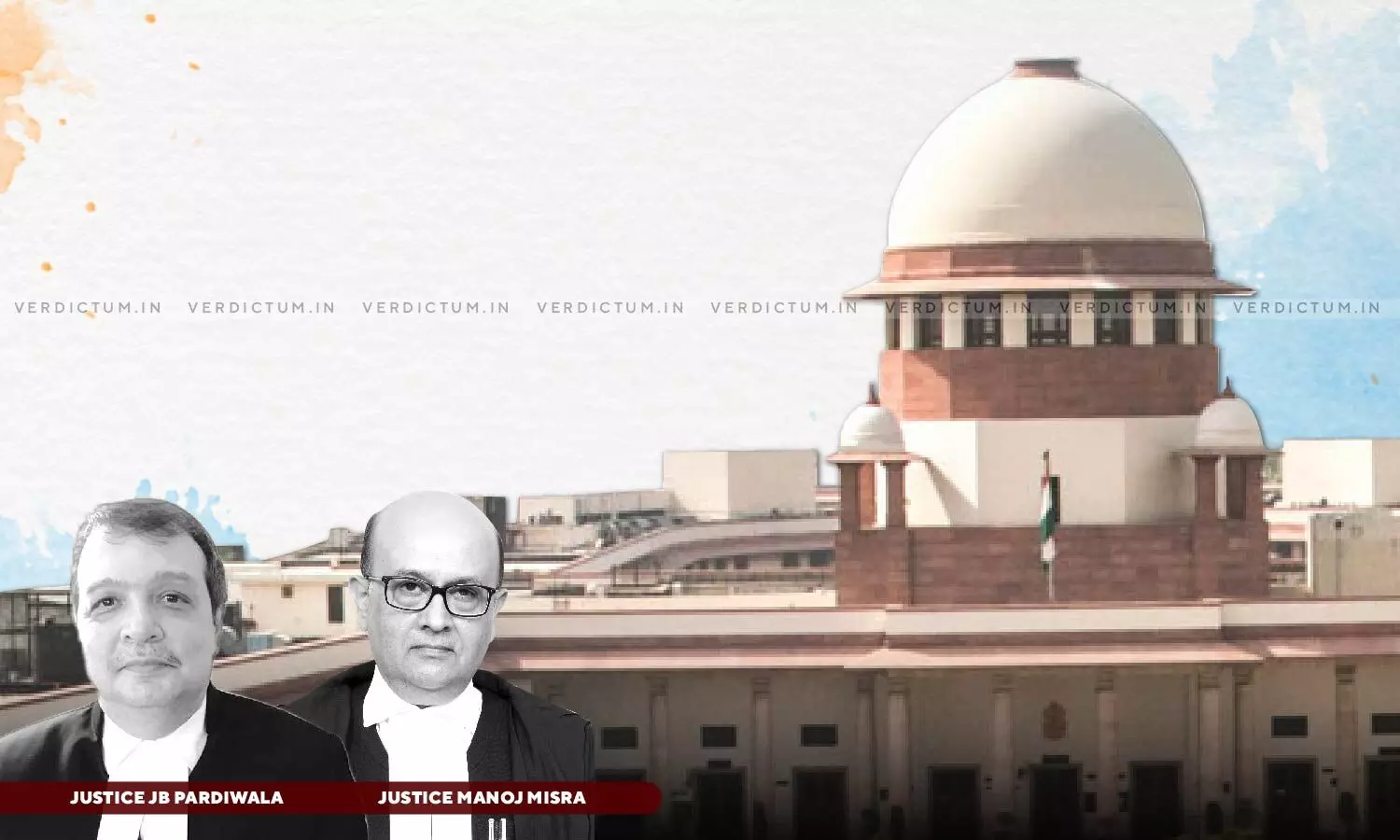
Presumption Under Section 113A Evidence Act Is Discretionary: SC Acquits Man Accused Of Abetting Suicide Of His Wife
 |
|The Supreme Court observed that the presumption under Section 113A Evidence Act is discretionary and before the presumption is raised, the prosecution must show evidence of cruelty or incessant harassment in that regard.
The Court observed thus while acquitting a man who was accused of abetting suicide of his wife. It said that the courts must remain very careful and vigilant in applying the correct principles of law governing the subject of abetment of suicide while appreciating the evidence on record, as otherwise it may give an impression that the conviction is not legal but rather moral.
Accordingly, while setting aside the judgment and order of conviction passed by the Trial Court as affirmed by the High Court, a bench of Justice J.B. Pardiwala and Justice Manoj Misra observed, “…we may only observe that the criminal justice system of ours can itself be a punishment. It is exactly what has happened in this case. It did not take more than 10 minutes for this Court to reach to an inevitable conclusion that the conviction of the appellant convict for the offence punishable under Section 306 of the IPC is not sustainable in law. The ordeal for the appellant started some time in 1993 and is coming to the end in 2024, i.e. almost after a period of 30 years of suffering. At the same time, we are also mindful of the fact that a young woman died leaving behind her 6 months old infant. No crime should go unpunished. But at the same time, the guilt of the accused has to be determined in accordance with law. To put it in other words, the guilt of the accused has to be determined on the basis of legal evidence on record”.
The Bench further was of the opinion that the courts faltered when they got enamoured by just three things (i) the deceased committed suicide within seven years of marriage, (ii) the accused was demanding money from the parents of the deceased for starting some business, and (iii) the deceased used to remain tense.
“We do not say that these are irrelevant consideration. All the three aspects are relevant. But there are settled principles of law to be made applicable to the matters of the present type. In the case of accusation for abetment of suicide, the court should look for cogent and convincing proof of the act of incitement to the commission of suicide and such an offending action should be proximate to the time of occurrence. Appreciation of evidence in criminal matters is a tough task and when it comes to appreciating the evidence in cases of abetment of suicide punishable under Section 306 of the IPC, it is more arduous…”, it further noted.
Advocate S.D. Singh appeared for the appellant and A.A.G. Raj Singh Rana appeared for the respondent.
In the present matter, it was the case of the prosecution that the wife committed suicide on account of incessant harassment at the end of her husband, and accordingly the appellant-convict was charged with the offence of abetting the commission of suicide by his wife punishable under Section 306 of the IPC.
While a lot of emphasis was laid on the fact that the deceased committed suicide within seven years from the date of her marriage.
However, after considering the relevant submissions, and statements of witnesses the bench took note of the fact that the reason behind the deceased to take such a drastic step of committing suicide was not clear.
Further, through the oral evidence of the witnesses in the matter, any form of incessant cruelty or harassment on the part of the husband which would in ordinary circumstances drag the wife to commit suicide as if she was left with no other alternative was disclosed. Therefore, the bench was of the opinion that mere demand of money from the wife or her parents for running a business without anything more would not constitute cruelty or harassment.
Appearances:
Appellant: Advocates S.D. Singh, Shweta Sinha, Ram Kripal Singh, Siddharth Singh, AOR Aparna Jha
Respondent: A.A.G. Raj Singh Rana (N/P) AOR Samar Vijay Singh, Advocates Keshav Mittal, Sabarni Som, Fateh Singh
Cause Title: Naresh Kumar v. State Of Haryana
Click here to read/download the Order